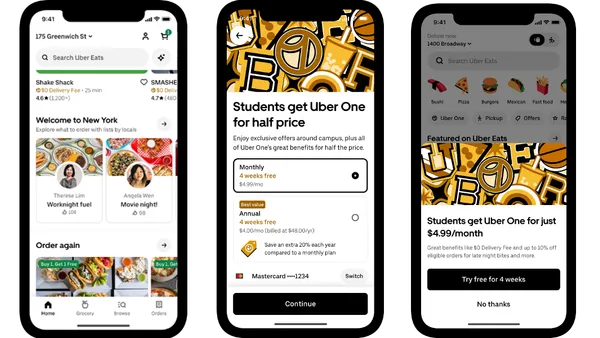Dive Brief:
- A Subway franchisee in Buckeye, Arizona, agreed to pay $30,000 to resolve allegations that it failed to accommodate a newly hired employee with autism in violation of the Americans with Disabilities Act, the U.S. Equal Employment Opportunity Commission announced May 10.
- In March 2019, a man applied for a job as a "sandwich artist" at the Buckeye Subway, the complaint alleged. After he filled out the application, his mother met with the restaurant manager and explained that he has autism and ADHD. She told the manager that he would need reasonable accommodations, including specific instructions to complete tasks, repeated instructions, redirection and someone to follow up with him to make sure he understood what to do, according to the lawsuit. The shop hired the man but allegedly didn't give him any formal training or provide him with the requested accommodations. After his fourth shift, the assistant manager told him he was being terminated.
- The EEOC sued the franchisee for violating the ADA by failing to accommodate him and for firing him because of his disability. Apart from providing $30,000 in damages, the franchisee will educate staff "on the importance of accommodating people with disabilities," said Melinda Caraballo, acting director at the EEOC's Phoenix district office.
Dive Insight:
Autism and ADHD, or attention-deficit hyperactivity disorder, affect brain function and the ability to learn, concentrate, think, communicate and work, according to the EEOC's lawsuit. The conditions are considered disabilities under the ADA.
Under the ADA, employers have a duty, absent undue hardship, to provide reasonable accommodation to "qualified individuals with a disability," including job applicants, new hires and current employees, EEOC guidance states. A "qualified individual with a disability" is a person who can perform the job's essential functions with or without reasonable accommodation. Once the individual or their representative requests (or makes the need known for) an accommodation, the employer must engage in an informal, "interactive" discussion to determine what reasonable accommodations are available.
When it comes to hiring or working with individuals with disabilities, people often view the terms "disability," "disorder" and "deficit" in a pejorative way, an expert in autism recently told HR Dive.
During the hiring process, employers should focus on whether a neurodiverse candidate has the necessary skills for the job, not abstract concepts like "cultural fit" or "vibe," an expert previously told HR Dive. Interviewers will get a better sense of the candidate's skills and suitability by asking about hypothetical scenarios instead of focusing on whether the candidate has a firm handshake or makes eye contact, which are employment barriers to autistic and blind people, the expert said.
"In a world dominated by rising technological advancement and automation, the benefits from having an inclusive, neurodiverse workforce have never been greater," Alan Price, CEO of UK-based BrightHR and a member of the Forbes Human Resources Council, wrote in a February blog. For example, people on the autism spectrum "often excel at pattern recognition and spotting irregularities, with sustained attention to detail," skills that are highly sought-after in business, the blog said.













